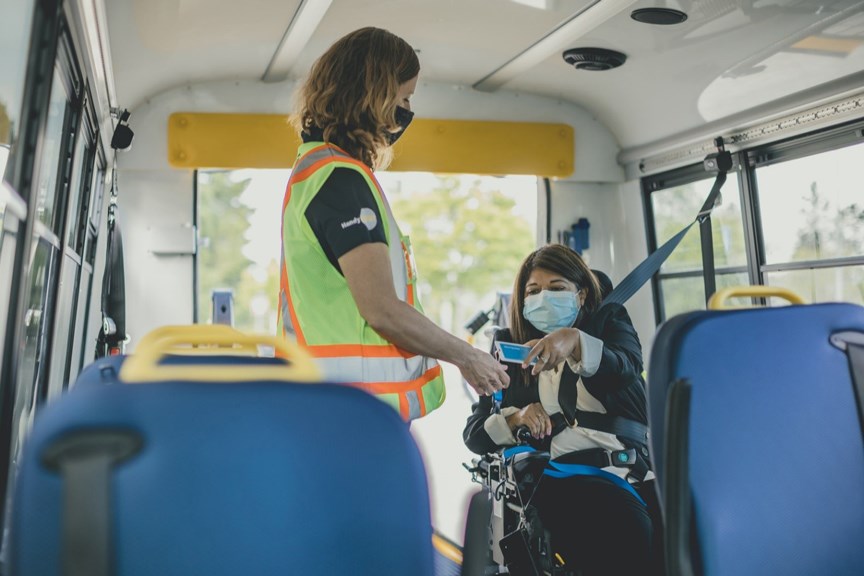The Editor:
Earlier this year Minister of Finance Chrystia Freeland, announced emergency support for transit and stated, “Fast, affordable, and reliable public transit is essential to making our cities livable and to our economic recovery.“
Public transit helps Canadians get to work, reduces traffic congestion, and improves air quality. For many Canadians, it is also the only viable option for getting around. This investment will help keep Canadians moving and ensure our economic recovery leaves no one behind.
Health and quality of life should be included in that statement. Paratransit like HandyDART has been shown to provide access to health care, jobs, education, and the social events that are essential for well-being. Statistics Canada shows that, due to the aging baby boom generation, trips per senior are down.
HandyDART workers serve, with dignity, safety and respect, seniors and disabled people. They can’t avoid close contact and risk contracting COVID, and injury rates for these workers are unprecedented. The challenging essential work that these workers do has been compensated significantly less than conventional bus drivers for over 40-years.
HandyDART is contracted to private contractors funnelling tax dollars into profit, not service. Each time a new for-profit contractor is awarded a contract, progress in service, training and safety is lost. Sarah Ross, Vice-president, transportation planning and policy, TransLink stated in a letter to the editor: “The electrification of our entire HandyDART fleet is also planned for, as laid out in our Climate Action Strategy.” Despite these plans, all Metro Vancouver HandyDart facilities are leased and investing in expensive charging systems makes no sense without permanent locations. Denying HandyDART riders quiet and clean electric vehicles is discriminatory, as is inadequate HandyDART service.
A Human Rights complaint that TransLink settled in 2019 alleged that “People are being denied access to transit because they are unable to use conventional transit without assistance. Dignity and self-esteem are damaged. Safety is put at risk. People are being isolated from family, friends and community.”
With the present labour shortage, which is partially related to our aging population, reliable transit service isn’t possible without offering good working conditions, wages, and benefits. In West Vancouver (one of the wealthiest municipalities in Canada) ATU 134 Blue Bus workers held a 99% strike vote. Not because they were unreasonable. Working conditions are abysmal. Unlike their compatriots in other municipalities, they have no turnaround time or breaks to eat, drink, stretch and more importantly, use a washroom, meanwhile their pay is over $3 less an hour.
Both conventional transit and HandyDART workers must be treated with respect – skilled workers are in high demand and can walk into other jobs if their basic needs are not met. Voters have an opportunity to defend their health, well-being and the environment in upcoming municipal elections. Public transit is not an option, it is survival, and electing strong transit advocates to municipal councils and the Metro Vancouver Regional District is essential.
- Mark Beeching, president, ATU local 1724



